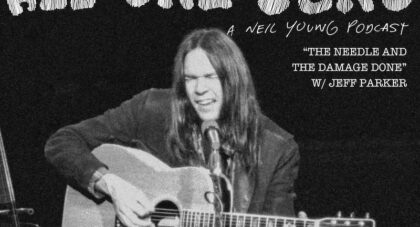J Mascis of Dinosaur Jr. joins us to discuss Sweep It Into Space, along with his solo albums, early SST days, playing with heroes like Ron Asheton of the Stooges, and more . . .
Only the good shit. Aquarium Drunkard is powered by its patrons. Keep the servers humming and help us continue doing it by pledging your support.
To continue reading, become a member or log in.


